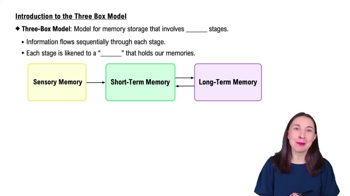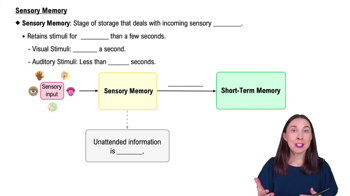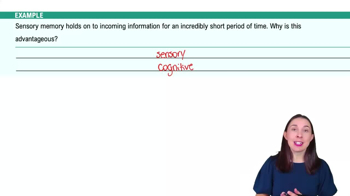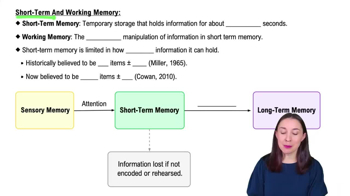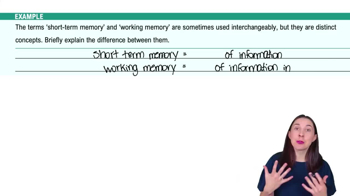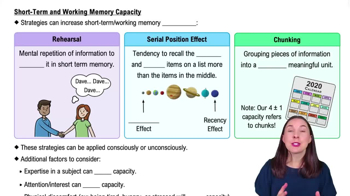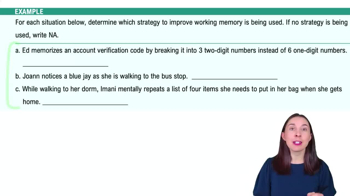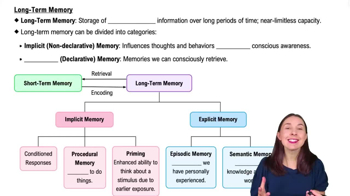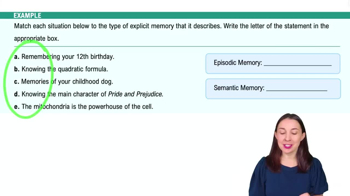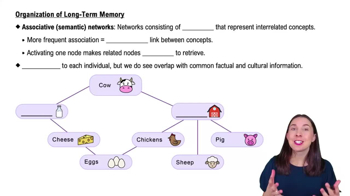Table of contents
- 1. Introduction to Psychology1h 43m
- 2. Psychology Research2h 20m
- 3. Biological Psychology2h 41m
- 4. Sensation and Perception28m
- 5. Consciousness and Sleep32m
- 6. Learning41m
- 7. Memory34m
- 8. Cognition37m
- 9. Emotion and Motivation35m
- 10. Developmental Psychology33m
- 11. Personality48m
- 12. Social Psychology41m
- 13. Stress and Health41m
- 14. Psychological Disorders44m
- 15. Treatment47m
7. Memory
Storage - The Three Box Model of Memory
Struggling with Psychology?
Join thousands of students who trust us to help them ace their exams!Watch the first videoMultiple Choice
Which of the following is NOT true of short-term memory?
A
Commonly impacted by the serial position effect.
B
It can hold a limited amount of information.
C
Typically holds information for a short length of time.
D
Can only process visual stimuli.
 Verified step by step guidance
Verified step by step guidance1
Understand the concept of short-term memory: Short-term memory is a part of the memory system where small amounts of information can be kept for a short period of time, typically around 20 to 30 seconds.
Review the serial position effect: This is a phenomenon where people tend to remember the first and last items in a series best, and the middle items worst. This effect is commonly associated with short-term memory.
Consider the capacity of short-term memory: Short-term memory is known to hold a limited amount of information, often cited as 7±2 items, according to Miller's Law.
Acknowledge the duration of short-term memory: Information in short-term memory is typically held for a brief period unless it is actively rehearsed or encoded into long-term memory.
Evaluate the statement about processing stimuli: Short-term memory is not limited to processing only visual stimuli; it can process auditory and other types of sensory information as well. Therefore, the statement 'Can only process visual stimuli' is NOT true of short-term memory.

 1:22m
1:22mWatch next
Master Introduction to the Three Box Model with a bite sized video explanation from Hannah Gordils
Start learningRelated Videos
Related Practice

